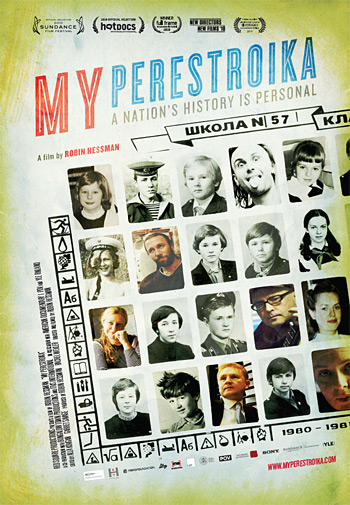Russians were apparently better 1950's style all-American US patriots.
 Even though he was badly hung-over, he knew there was a national crisis. Though the bleary-eyed Russian did not know at the time the hard line Communist coup had deposed Mikhail Gorbachev, he saw that Swan Lake was the only program on television. For some reason, the Soviets always broadcasted the Tchaikovsky ballet during periods of internal turmoil. It is telling details like this that connect the personal to the grandly historical in Robin Hessman’s My Perestroika, which screened earlier this year at New Directors/New Films.
Even though he was badly hung-over, he knew there was a national crisis. Though the bleary-eyed Russian did not know at the time the hard line Communist coup had deposed Mikhail Gorbachev, he saw that Swan Lake was the only program on television. For some reason, the Soviets always broadcasted the Tchaikovsky ballet during periods of internal turmoil. It is telling details like this that connect the personal to the grandly historical in Robin Hessman’s My Perestroika, which screened earlier this year at New Directors/New Films.A Russophile in high school, Hessman was working for LENFILM, the Soviet film agency based in what was then Leningrad, at the time of the infamous coup. Through her time working and studying in Russia, Hessman developed a keen appreciation for the stoic nobility of average Russian citizens, which is clearly reflected in Perestroika. Using five former classmates as representative everymen, Hessman subjectively presents the last 40-some years of Russian and Soviet history through their reminiscences and home movies. More























































































































































































































































No comments:
Post a Comment